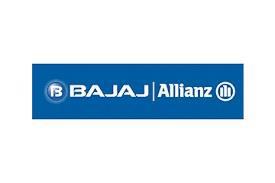Current Affairs Nov 2019 - Banking and Finance
1 - MSTC tied up with Allahabad Bank to develop e-auction platform

MSTC Ltd has signed an agreement with Allahabad Bank for the development of a dedicated e-Auction platform directly linked with the Indian Banking Association's portal (https://ibapi.in) for sale of non-performing assets (NPAs) through the SARFAESI (Securitisation and Reconstruction of Financial Assets and Enforcement of Securities Interest) Act.
The e-Auction platform will be a one-of-a-kind solution, where a bidder once registered, will be able to participate in auctions for all banks. MSTC is a Kolkata-headquartered Central Government of India company engaged in domestic and international trading.
2 - RBI issued compensation norms for foreign, private banks

The Reserve Bank of India issued compensation guidelines for whole-time directors and chief executives of foreign, private, small finance, payments banks and local area banks, mandating the cash component of variable pay at 67%. If the variable pay is up to 200% of the fixed pay, at least 50% of it should be in non-cash. If the variable pay is above 200%, 67% of it should be paid via non-cash instruments.
In a notification, the RBI announced that banks should continue to formulate and adopt a comprehensive compensation policy covering all their employees and conduct annual reviews.
3 - Overseas investors remain net buyers as FPIs invest over Rs 12,000 cr in November

Overseas investors remained net buyers in the domestic capital markets with an investment of over 12,000 crore rupees in November so far as market sentiments improved following economic reforms by the government.
The latest depositories data showed that Foreign Portfolio Investors (FPI) infused around 6,434 crore rupees in equities and 5,674 crore rupees in debt segment. In October, FPIs invested around 16,465 crore rupees while in September they had put in 6,558 crore rupees.
4 - RBI increased household income limits for borrowers of NBFCs and MFIs

Reserve Bank has increased the household income limits for borrowers of Non-Banking Financial Companies (NBFCs) and microfinance institutions (MFIs) from 1 lakh to 1.25 lakh rupees. Similarly, the limit has been increased from 1.6 lakh for urban or semi-urban areas to 2 lakh rupees.
The limit has been increased after taking into consideration the important role played by microfinance institutions in delivering credit to those at the bottom of the economic pyramid and to enable them to play their assigned role in a growing economy.
5 - RBI imposed Rs 5 lakh fine on Oxigen Services

The Reserve Bank has imposed a fine of Rs 5 lakh on prepaid payment instrument Oxigen Services in exercise of powers vested under Section 30 of the Payment and Settlement Systems Act, 2007.
Reserve Bank of India has imposed monetary penalty on the Prepaid Payment Instrument (PPI) issuer Oxigen Services (India) Private Limited for non-compliance of regulatory guidelines. Oxigen Services facilitates payment processing and money transfer services.
6 - Bajaj Allianz General Insurance launched ‘Farmitra’ mobile app for farmers

Bajaj Allianz General Insurance has launched a new mobile app called 'Farmitra' for farmers to help them in optimizing their farming practices. Farmers can get solution to their queries, get insurance solutions and information. App will analyze weather forecast specific to their area, advisories customized as per the selected crops and act as a locator for seed/soil testing labs, fertilizer dealers, Cold Storage around the area.
The application is currently implemented in 6 states, namely Rajasthan, Madhya Pradesh, Uttar Pradesh, Karnataka, Maharashtra and Haryana.
7 - Indian Bank signed MoU with Muthoot Microfin

Muthoot Microfin has signed a memorandum of understanding with public sector Indian Bank to serve micro, small and medium enterprises. As per the memorandum of understanding, Muthoot Microfin and the bank will jointly lend to the MSME borrowers. Indian Bank general manager-MSME Sudhakar Rao exchanged documents with Muthoot Microfin deputy CFO Praveen T in the presence of the bank’s managing director and CEO Padmaja Chunduru.
Muthoot Microfin, the microfinance arm of Muthoot Pappachan group (MPG) provides financial support to low-income earning women entrepreneurs.
8 - Exim Bank granted $30 million line of credit to Ghana

Exim Bank extended two lines of credit of USD 30 Million and USD 150 Million to The Government of the Republic Of Ghana for the purpose of financing rehabilitation and up-gradation of portable water system of Yendi Water Systems.
Under the agreement, out of the total credit by Exim Bank, works and services of the value of at least 75% of the contract price shall be supplied by the seller from India and the remaining 25% of goods and services may be procured by the seller for the purpose of eligible contract from outside India.
9 - ADB, India sign $91 Million Loan for Comprehensive Water Management in Karnataka

The Asian Development Bank (ADB) and the Government of India signed a $91 million loan as a part of second project loan for the Karnataka Integrated and Sustainable Water Resources Management Investment Program (IWRM). The first project is helping the modernization of the Gondi irrigation system.
The amount towards the loan will be utilized to modernize the Vijayanagara Channel irrigation systems and prepare river basin management plans in the Krishna river basin that will help improve irrigation water use efficiency and contribute to improving sustainable water security in Karnataka.
10 - New rules framed under IBC for rescue of non-bank lenders

The Government of India issued fresh rules under the Insolvency and Bankruptcy Code (IBC) to govern the rescue of non-bank lenders to help out distressed shadow banks and housing financiers, which have been battling a liquidity crunch for a year such as Dewan Housing Finance Corp. Ltd (DHFL).
According to new rules:
A regulator is allowed to refer a non-bank lender or housing financier to a bankruptcy tribunal.
The registration or the licence of the financial services provider will not be suspended or cancelled during the bankruptcy resolution process.
11 - FICCI signed MoU with Singapore Fintech Association

Federation of Indian Chambers of Commerce and Industry (Ficci) signed a memorandum of understanding with Singapore Fintech Association at the opening ceremony of the first ever Singapore Pavilion at the Singapore FinTech Festival 2019, the largest FinTech event in the world. It was signed for the development of the FinTech industry in both countries.
With the rapid rise of new age Fintechs in the Indian market and cutting edge work being done in Singapore, FICCI will facilitate new collaborations between Fintechs and Financial Institutions in the two markets.
12 - World Bank’s 300 million USD plan to develop Kolkata

World Bank submitted 300 million USD master plan to develop logistics infrastructure of Kolkata metropolitan area. The infrastructure spending will be used for review of industrial parks, logistics hubs and SEZs encompassing West Bengal with the aim of improving logistics competitiveness, employment generation and ease of doing business.
West Bengal government has increased spending on infrastructure every year, from Rs 1,758 crore in 2011 to Rs 9,553 crore in 2018. West Bengal government is expected to generate employment for around 1.26 lakh people by investing in logistics infrastructure in the state.
13 - AIIB to invest 100 million USD in solar and wind projects in India

The Asian Infrastructure Investment Bank (AIIB) which is headquartered at Beijing expects an annual private investment of 100 million USD for solar and wind projects in India. Private investments validate business models of infrastructure and ensure it is economically sustainable. AIIB has already invested $2.844 billion in Indian projects.
AIIB’s other investments in India include $500 million in Mumbai Urban Transport Project 3, $455 million in Andhra Pradesh Rural Roads Project and $450 million in AP Urban Water Supply Project.
14 - RBI constituted 3-member panel for DHFL

The Reserve Bank of India constituted a three-member panel to advise the Administrator of Dewan Housing Finance Corporation Limited, DHFL, ahead of formally moving for resolution of the troubled mortgage lender under the insolvency law. RBI superseded DHFL's board and placed the company under an administrator in the wake of governance issues and severe liquidity crisis which had led to a string of defaults.
The panel includes IDFC First Bank's Non-Executive Chairman Rajiv Lall, ICICI Prudential Life Insurance's Managing Director and Chief Executive N S Kannan and Mutual Funds' Association AMFI's Chief Executive N S Venkatesh.
15 - RBI enhanced scope of Non-Resident Rupee Accounts

In order to promote the usage of INR products by persons resident outside India, the Reserve Bank in consultation with Indian government, enhanced the scope of 'Special Non-resident Rupee' (SNRR) by allowing persons residing outside India to open such accounts for purposes like external commercial borrowing, trade invoicing in INR and trade credit in INR.
Special Non-Resident Rupee Account is opened by any person resident outside India, having a business interest in India for the purpose of putting through bona fide transactions in rupees.
16 - ADB, India signed $451 Million Loan to strengthen Power Connectivity in Tamil Nadu

The Asian Development Bank (ADB) and the Government of India signed a $451 million loan to strengthen power connectivity between the southern and northern parts of the Chennai–Kanyakumari Industrial Corridor (CKIC), which is part of the East Coast Economic Corridor (ECEC), in Tamil Nadu.
The project will help Government of Tamil Nadu meet the increasing demand for power supply from industry and commercial enterprises in the State, provide an impetus to the industrial development of CKIC and help establish extra-high-voltage transmission link between Virudhunagar and Coimbatore.
17 - IBBI amended the Insolvency and Bankruptcy Board of India Regulations, 2016

The Insolvency and Bankruptcy Board of India (IBBI) notified the Insolvency and Bankruptcy Board of India (Insolvency Resolution Process for Corporate Persons) (Third Amendment) Regulations, 2019. The Insolvency and Bankruptcy Code, 2016 (Code) envisages corporate insolvency resolution process (CIRP) for reorganisation and insolvency resolution of corporate debtors. An insolvency professional conducts the CIRP and manages its operations during the CIRP.
An IP shall be liable to action permissible under the Code, including refusal to issue or renew Authorisation for Assignment, for failure to file a Form or for inaccurate or delayed filing.



















